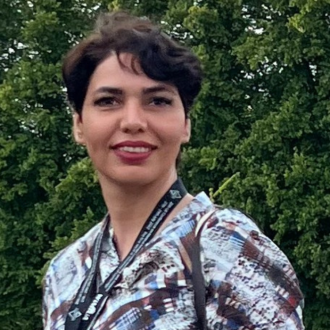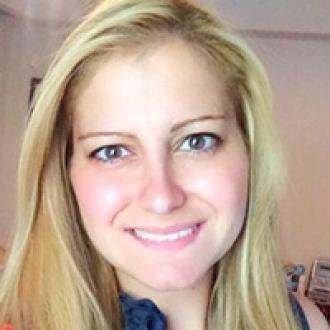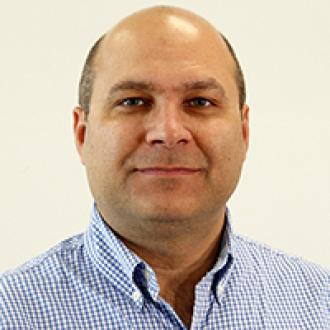- Undergraduate
Data Science BSc (Hons)
Overview
Why study at the University of West London?
- Ranked 30th university in the UK - The Guardian University Guide 2025
- Number 1 London university for overall student satisfaction - National Student Survey 2024**
- Best university for Student Experience and Teaching Quality in the UK - The Times and Sunday Times Good University Guide 2024
As a graduate of a BSc Data Science degree, you will offer your employers outstanding skills in modelling, statistical analysis, and software development.
The course offers a balance between theory and applications, allowing you to both develop a deep understanding of mathematical and statistical tools whilst, being able to translate these into concrete computer-based solutions.
Upon successful completion of this degree, you will be well-equipped to enter a career in data analysis, modelling, finance/insurance, or in the computing industry. You may also choose to further specialise by undertaking postgraduate studies in subjects such as computer science, cyber security, data science, or artificial intelligence.

Select your desired study option, then pick a start date to see relevant course information:
Start date:
If your desired start date is not available, try selecting a different study option.
Why study Data Science with us?


What our students say…
The lecturers are fantastic and I don't think I would get as many work experience opportunities at any other university.




Course detail & modules
The course introduces you to mathematical, statistical, and computing techniques that form the basis of many tools used in industry, engineering, business, and education, using information and data as an integral part of decision-making and teamwork.
This data science course aims to produce graduates who:
- meet employer requirements for well-trained, competent, and adaptable professionals with expert knowledge in data-driven decision-making
- are highly numerate and able to use this to applications for modelling purposes
are independent learners, able to acquire new skills and continue to build their knowledge, to adapt to a rapidly changing job market - can undertake postgraduate studies in several disciplines related to data science, computing and artificial intelligence
- are strong communicators and have strong interpersonal and team working skills
have knowledge of ethical issues, particularly the need for sensitivity in data handling and decision-making.
Throughout your studies you can expect a supportive learning environment that will:
- develop your interpersonal skills
- raise your self-awareness
- encourage personal and career growth
- stimulate the idea of lifelong learning.
You can expect regular contact with employers and career advisers, as an integral part of taught modules and extracurricular activities. We offer an inclusive and diverse learning environment that makes use of a variety of teaching and learning methods, and encourages teamwork.
Compulsory modules
-
Probability and Statistics
This module is an introduction to probability theory and statistical methods. The module leads to a deeper understanding of probability distributions, random variables and their role in sampling. Tools such as hypothesis testing are presented and a basic introduction to the statistical software SPSS is provided.
-
Linear Algebra
The aim of this module is to extend your knowledge of matrices, vectors and systems of linear equations and to introduce the abstract concepts of vector spaces, linear maps and inner products.
-
Programming
The module provides a thorough grounding in the fundamentals of Java programming language and object programming concepts. It will focus on the design and build of Java desktop applications using the Java Development Kit and popular Integrated Development Environments, following established industry standard methodologies. The module will have a strong emphasis on using OO modelling techniques to interpret and implement business related applications.
-
Calculus 1
This module introduces you to the most important techniques in Calculus. In particular, the module leads to a deeper understanding of the concepts of differentiation and integration. Tools and techniques for differentiation and integration will be presented in detail.
-
Data Science and Visualisation
-
Algorithms and Data Types
This module will help you to gain the knowledge and competence to deal with basic data structures and algorithms. You will learn how to specify collections using abstract data types (ADTs) and to implement them using a variety of techniques such as linked lists and trees. You'll also use a range of algorithms, including searching and sorting.
Compulsory modules
-
Multi-variate Calculus
-
Artificial Intelligence
In this module you will gain insights into key techniques within the field of artificial intelligence (AI). Aspects of AI you'll cover include agents, environments and learning as well as techniques such as regression, classification, clustering, reinforcement learning, learning recommendation and decision support systems.
-
Theory of Computation
The aim of this module is to provide you with the knowledge and understanding of fundamental concepts of computational theory and computational complexity. You will learn how to examine whether a given problem can be solved computationally. The module aims to introduce computation science, to model complex dynamic systems, and diagramming models.
-
Numerical Methods
This module aims to introduce you to the numerical techniques required to solve different mathematical problems motivated by the engineering and the science sector.
-
Statistical Modelling
This module aims to develop understanding and proficiency in statistical modelling by introducing you to the normal theory linear model. It will provide you with the ability to formulate and apply these models in a range of practical settings, to carry out associated inference appreciating how this relates to the general likelihood inferential framework, and to perform appropriate model selection and model checking procedures.
-
Applications of AI
In addition to the three compulsory modules, you will study two modules (20 credits each) from the following options:
- Ordinary and Partial Differential Equations OR Robotics and AI
- Operational Research and Optimisation OR Natural Language Processing
Compulsory modules
-
Machine Learning
Machine learning is an application of artificial intelligence that provides systems with the ability to automatically learn and improve from experience without being explicitly programmed.
This module familiarises you with some basic machine learning algorithms and techniques and their applications, as well as general questions related to analysing and handling large data sets. Several software libraries and data sets publicly available will be used to illustrate the application of these algorithms. The emphasis will be thus on machine learning algorithms and applications, with some broad explanation of the underlying principles.
-
Databases and Analytics
There has been an explosion in data, much of which is not fully structured, but contains valuable information such as search trends, consumer behaviour and other patterns. This module aims to cover some of the developments in the broad range of "Big Data" problems. It will give you a good understanding of data structures, software development procedures and the range of analytical tool used to undertake a wide range of standard and custom analyses to provide data solutions to these issues.
-
Project
Under the guidance of an academic supervisor, you will investigate in depth a mathematical or statistical topic with has close links to computing. You will be able to choose a project that may require the solution to a specific problem, the creation of an artefact in a real-world environment or an investigation of innovative ideas and techniques related to an area within their field of study.
You will compose a written report and provide an oral presentation on your work.
Optional modules
-
Ordinary and Partial Differential Equations
This module aims to study both the qualitative and quantitative aspects of Ordinary and linear Partial Differential Equations.
-
Robotics and AI
-
Operational Research and Optimisation
The module aims to introduce you to linear programming, the Simplex Method and the Transportation Algorithm. The module will enable you to solve linear programming problems as primal problems or using duality. The module includes an introductory theory for nonlinear programming problems by demonstrating the application of Lagrange Multiplier Theory as well as tackling optimisation problems
-
Natural Language Processing
Entry requirements
These can include:
- A Levels at grade B, B and B, or above
- BTEC Extended Diploma with Distinction, Distinction, Merit
- Access to HE Diploma
- T Levels
Your Level 3 qualifications must include Mathematics or Statistics.
You also need GCSE English and Maths (grade 9 - 4 / A* - C) or Level 2 equivalents.
Looking for BSc (Hons) Data Science with Foundation Year?
Mature applicants (aged 21+): If you do not hold the qualifications listed but have relevant work experience, you are welcome to apply. Your application will be considered on an individual basis.
Level 5 (year 2) entry
To directly enter the second year of this course you will need to show appropriate knowledge and experience. For example, you are an ideal candidate if you have 120 undergraduate credits at Level 4 or a CertHE in a related subject area.
Level 6 (year 3) entry
To directly enter the third year of this course you need to show appropriate knowledge and experience. For example, you are an ideal candidate if you have 240 undergraduate credits (at Levels 4 and 5), a DipHE, Foundation Degree or HND in a related subject area.
Looking for BSc (Hons) Data Science with Foundation Year?
You need to meet our English language requirement - a minimum of IELTS 5.5 for each of the 4 individual components (Reading, Writing, Speaking and Listening). Visit our English language requirements page for information on other English language tests we accept.
You also need academic qualifications at the same level as UK applicants. In some countries where teaching is in English, we may accept local qualifications. Check for local equivalents.
We offer pre-sessional English language courses if you do not meet these requirements.
Looking for BSc (Hons) Data Science with Foundation Year?
Mature applicants (aged 21+): If you do not hold the qualifications listed but have relevant work experience, you are welcome to apply. Your application will be considered on an individual basis.
Level 5 (year 2) entry
To directly enter the second year of this course you will need to show appropriate knowledge and experience. For example, you are an ideal candidate if you have 120 undergraduate credits at Level 4 or a CertHE in a related subject area.
Level 6 (year 3) entry
To directly enter the third year of this course you need to show appropriate knowledge and experience. For example, you are an ideal candidate if you have 240 undergraduate credits (at Levels 4 and 5), a DipHE, Foundation Degree or HND in a related subject area.
Looking for BSc (Hons) Data Science with Foundation Year?
Fees & funding
Please note:
- Fees for the 2026/27 academic year and onwards may be subject to Government regulation and change.
- Tuition fees are charged for each year of your course. If your course runs for two years or more, you will need to pay the fee for each academic year at the start of that year.
- If your course runs for less than two years, the cost above is for your full course and you will need to pay the full fee upfront.
- If no fee is shown above then the fees for this course are not available yet. Please check again later for updates.
Funding your studies
You may be eligible for a student loan to cover the cost of tuition fees, or a maintenance loan. Additional funding is available to some types of students, such as those with dependants and disabled students.
We offer generous bursaries and scholarships to make sure your aspirations are your only limit. In recent years, hundreds of students have received our Full-time Undergraduate Student Bursary.
View full details, including conditions and eligibility.
Please note:
- Fees for the 2026/27 academic year and onwards may be subject to Government regulation and change.
- Tuition fees are charged for each year of your course. If your course runs for two years or more, you will need to pay the fee for each academic year at the start of that year.
- If your course runs for less than two years, the cost above is for your full course and you will need to pay the full fee upfront.
- If no fee is shown above then the fees for this course are not available yet. Please check again later for updates.
International students - funding your studies
We offer scholarships for international students including International Ambassador Scholarships.
Further information about funding and financial support for international students is available from the UK Council for International Student Affairs.
Teaching staff

Dr Thomas Madsen
Before joining the University of West London, Dr Madsen was a Lecturer at University of Buckingham. Before that he held academic positions at a number of international institutions, including at Aarhus University (Denmark), Centro di Ricerca Matematica Ennio De Giorgi (Pisa) and King’s College London.
Most of Dr Madsen’s research and publications are in the area of differential geometry. He particularly enjoys analysing and finding explicit solutions to partial differential equations that arise in a geometric context (e.g. Einstein’s equations), using symmetry techniques.
Before joining the University of West London, Dr Madsen was a Lecturer at University of Buckingham. Before that he held academic positions at a number of international institutions, including at Aarhus University (Denmark), Centro di Ricerca Matematica Ennio De Giorgi (Pisa) and King’s College London.
Most of Dr Madsen’s research and publications are in the area of differential geometry. He particularly enjoys analysing and finding explicit solutions to partial differential equations that arise in a geometric context (e.g. Einstein’s equations), using symmetry techniques.
Study & career progression

The demand for data science professionals is projected to grow significantly, a degree in data science can open several career paths, including:
- Junior Data Analyst
- Junior Data Engineer
- Data Scientist
- Machine Learning Engineer
- Business Analyst
- Data Engineer
- Database Administrator
- Quantitative Analyst
- Research Scientist
You may also choose to further specialise your skills by undertaking a masters course. View our computer science-related postgraduate courses.
How to apply

Head to the UCAS website where you can apply using:
- our institution code - W05
- the UCAS course code (below)
Want to ask us a question first? We would love to hear from you. Contact us free on:
Apply for this course
- Institution code
- W05
- UCAS code
- currentVariantData.field_p_cv_ucas_code
Next steps after making your application
We aim to make a decision on your application as quickly as we can. If we need any more information about your qualifications, we will be in touch.
In the meantime, come and visit us and find out more about what studying at UWL is like. Sign up for an open day or join a campus tour.
Visit us and see for yourself
Talk to our tutors and find out about our courses and facilities at our next open day or join a campus tour.
Our prospectus
All of our courses in one place - download now or order a hard copy.
We're here to help
Any questions about a course or studying at UWL? We're here to help - call us on 0800 036 8888 (option 2, Monday – Friday 10am-4pm) or email us on courses@uwl.ac.uk.

You can apply to us in two ways:
- on the UCAS website you will need our institution code (W05) and the UCAS course code (at the top of this page)
- directly on our website – follow the ‘apply now’ link below
Want to ask us a question first? Our dedicated international students’ team would love to hear from you.
- Ask the International Recruitment Team a question
- learn more about international student applications
- find out more about why you should study in London at the Career University.
Apply for this course
Next steps after making your application
We aim to make a decision on your application as quickly as we can. If we need any more information about your qualifications, we will be in touch.
In the meantime, come and visit us and find out more about what studying at UWL is like. Sign up for an open day or join a campus tour.
Visit us and see for yourself
Talk to our tutors and find out about our courses and facilities at our next open day or join a campus tour.
Our prospectus
All of our courses in one place - download now or order a hard copy.
We're here to help
Any questions about a course or studying at UWL? We're here to help - call us on 0800 036 8888 (option 2, Monday – Friday 10am-4pm) or email us on courses@uwl.ac.uk.
Search for courses
Student life at UWL
Important notes for applicants
Disclaimer
*Modern universities - defined as higher education institutions that were granted university status in, and subsequent to, 1992.
**The National Student Survey 2023 and 2024 - Average of answers to all questions by registered student population. Excludes specialist institutions.
Testimonials - our students or former students provided all of our testimonials - often a student from the course but sometimes another student. For example, the testimonial often comes from another UWL student when the course is new.
Optional modules - where optional modules are offered they will run subject to staff availability and viable student numbers opting to take the module.
Videos - all videos on our course pages were accurate at the time of filming. In some cases a new Course Leader has joined the University since the video was filmed.
Availability of placements - if you choose a course with placement/internship route we would like to advise you that if a placement/internship opportunity does not arise when you are expected to undertake the placement then the University will automatically transfer you to the non-internship route, this is to ensure you are still successful in being awarded a degree.













